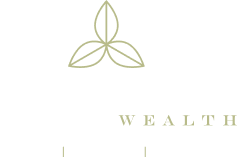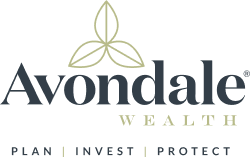As 2025 begins, we wish you a happy new year, filled with good health and abundant blessings from our Avondale Team! We hope you enjoyed a relaxing time with family, friends and loved ones over the Christmas period. We look forward to catching up with each of you throughout the year to review your financial strategy and ensure you’re on track to achieve your goals. Please don’t hesitate to reach out if there are any significant changes in your circumstances that you would like to discuss with our team.
In the meantime, we would love to hear about how you spent your time over this Christmas/New Years period!
Reflecting on some of the main client questions and concerns we have fielded during the past year, we wanted to start our first Newsletter of the year addressing some of these queries.
1. Who are some of the new additions to the Avondale Team?
2. What are investment markets doing, and what are the predictions for 2025?
3. Although thankfully we have not had any client’s fall victim to these scams, we have had a number of reports from client’s who have been targeted with increasingly sophisticated scams targeting Superannuation and Bank accounts. How can you stay one step ahead of these cyber criminals?
4. With the cost of living continuing to bite into retiree budgets, are there any avenues to access any Centrelink assistance or support?
I have included four articles in this newsletter, that I believe might address some of these questions above.

Avondale Team Introduction
Many of you would have noticed in our Christmas cards, the Avondale Team is expanding. You may also be unaware that we have operated a Mortgage Broking Business for the past 12 years. Recently, we relaunched this Mortgage Broking Business as Avondale Finance for consistency in our branding.
Avondale Finance specialises in residential and commercial property purchases, refinances and SMSF loans. Our services also extend to those considering downsizing (especially retirees) by providing clients the flexibility to buy their new home now and to sell their current home later.
In future Newsletters, we will be profiling additional members of our Avondale Team, but for now, we would like to introduce you to two members of Avondale Finance, Matthew Nott and Andrew Pike.

Matthew is the co-founder of Avondale Finance, and leads our lending team as the Principal Lending Manager. Matthew has over two decades of experience in Financial Services and holds a Certificate IV in Financial Services (Finance/Mortgage Broking) and is also a Justice of the Peace (NSW). His focus is assisting clients to achieve their financial dreams through property investment and loan structuring. He feels an enormous sense of achievement seeing his clients achieve home ownership. When not at work, Matthew enjoys spending time with his wife Anne and his three sons whilst supporting the Parramatta Eels.

Andrew has over 5 years of experience in the accounting industry, and now assists the lending team at Avondale Finance as a Mortgage Broker. Andrew holds a Diploma in Finance and Mortgage Broking (Kaplan). Andrew prides himself on his ability to connect with clients, understand their needs and to provide tailor-made solutions to achieve the best client outcomes. Outside of work, Andrew enjoys playing soccer and has a fundamental appreciation for music.

2024 Year in Review: Successfully navigating uncertain times
The many unpredictable events of 2024 could easily have been disastrous for investment markets. Instead, we saw remarkable resilience and growth despite occasional volatility as investors reacted to the extraordinary times.
While economic growth in Australia and overseas was underwhelming, share markets rode out the ups and downs to finish 2024 strongly. 2024 was the ‘super election year’, when almost 2.5 billion people in 70 countries voted.i One result that has captured the attention of governments and analysts around the world is Donald Trump’s return to office in the United States. He has promised massive tariffs, tax cuts and increased spending on defence. All measures are likely to increase inflation and budget deficits which will affect global markets and economies.ii
Continuing geopolitical upheaval also marked the year. Tension in the Middle East grew as Israel expanded its campaign and European Union economies came under increased pressure when Ukraine stopped the flow of Russian gas.
The US dollar ended the year on a two-year high but that, and a weakening Chinese Yuan, led to a two-year low for the Australian dollar, which ended the year just below 62 US cents.iii
Cost of living falls but interest rates steady
Around the world, interest rates fell during the year but in Australia, after five interest rate increases in 2023, the Reserve Bank (RBA) held steady at 4.35 per cent, believing inflation is still too high.
Nonetheless, the cost of living has fallen significantly, down to 2.8 per cent in the September quarter from a high of 7.8 per cent two years ago and 3.8 per cent in the June quarter.iv
Falls in electricity and petrol prices contributed to the easing.
Australia’s economy grew by 0.8 per cent in the three quarters to the end of September – it’s slowest in decades.v
House prices mixed across the country
The housing market appeared to cool by the end of the year with average national home values falling by 0.1 per cent in December to a median of $815,000.vi
CoreLogic’s Home Value Index data shows four of the eight capitals recording a decline in values between July and December. These included Melbourne, Sydney, Hobart and Canberra. While in Perth, Brisbane, Adelaide and Darwin, home values increased.
Share markets survive and prosper
Global share markets were unsinkable in a year of stormy economic and political conditions.
The Nasdaq surged more than 30 per cent for the year. The S&P 500 was up 25 per cent – pushed along by the ‘magnificent seven’ tech stocks – and the Dow rose 14 per cent.
Although not quite in the same league, the ASX performed strongly, recording 24 new record highs during 2024. The S&P/ASX 200 closed the year at 8159, up 7.5 per cent, with some analysts predicting 2025 will close around 8800.
Commodities
Gold came into its own as a safe haven for those concerned about events around the globe, reaching an all-time high in October and adding more than 28 per cent for the year.
Oil prices were subdued with investors cautious about a glut, the risks of wider conflict in the Middle East, the war in Ukraine and the change of government in the US. Although there is some optimism for improved growth in China in 2025.
Iron ore prices have continued to decline, now down to about half of the peak US$200 a tonne in 2021.
Looking ahead
Economists’ forecasts vary on the timing of a cut in interest rates in 2025 but some believe there will be as many as four cuts, reducing the rate to 3.35 per cent by year end.
Share price volatility is expected to continue as investors roll with the global political and economic punches and the upcoming Australian Federal Election is likely to introduce uncertainty until the results are in.
If you’d like to review your goals for the coming year in the light of recent and expected developments, don’t hesitate to get in touch.
Note: all share market figures are live prices as at 31 December 2023 and 2024 sourced from: https://tradingeconomics.com/stocks.
i Why 2024 is a record year for elections around the world | World Economic Forum
ii The economy and markets will boom under Trump | AFR
iii Australian dollar now at risk of plummeting to pandemic-era lows | ABC News
iv Consumer Price Index, Australia, September Quarter 2024 | Australian Bureau of Statistics
v Australian economy grew 0.3 per cent in September Quarter | Australian Bureau of Statistics
vi National home values record first decline in almost two years | CoreLogic Australia

Superannuation scams
If someone offers to withdraw your super or move it to a self-managed super fund (SMSF) so you can get the money, it could be a scam. Learn how to spot the signs of a super scam and what you can do to protect yourself.
Scammers may target your super because most Australians have a super account that can hold a large amount of money.
If you’ve been affected by a data breach, contact your super fund to let them know. A scammer may have access to your accounts, including your super.
Spot the signs of a super scam
Scammers can target you online, by phone or email. They may use flashy advertising through social media or on websites.
Here are some ways a scammer could try to get your super.
Phishing scams for your personal details
A scammer contacts you pretending to be from a financial firm, such as a bank or super fund. They may use copied AFS licence details from a legitimate organisation to give you the impression they are genuine.
They ask for your personal or account details and may send an email with a link. When you click on the link, they will gain access to your computer, including your log-in details for other accounts.
With these details, a scammer can:
- create a super account in your name with another fund, or a fake SMSF, then transfer funds to this account and withdraw it
- use stolen myGov sign in details to gain access to your personal details and superannuation accounts
Encourage you to open a self-managed super fund
A scammer offers to help you ‘control’ your super by establishing a SMSF and transferring your super into it. They may:
- offer to help grow your super by investing with them in fake high return investments
- provide a fake investment performance app or computer program, showing false returns on your investments
- offer to ‘do everything for you’, advising there is no need to engage with anyone else as they will take care of it
- offer to invest your super in unusual investments such as cryptocurrencies or foreign currency bonds
Scammers using this tactic may not be pushy and instead attempt to build trust with you over time. Eventually, they convince you to transfer your super into a SMSF or bank account that they control. They can then withdraw your super.
Offer to get access to your super early
Someone offers you a quick and easy way to access your super early, which may not satisfy a condition of release.
They may offer to help you fill out genuine documents needed to do this. This may include giving them your personal details to withdraw super from your fund or suggest transferring it into a SMSF, for a fee. They may tell you that after the paperwork is lodged, you can access the funds for personal use.
This process is illegal, and you will end up paying additional tax and penalties.
Protect yourself from super scams
Here’s how to protect yourself from super scams.
Check your balance and contact details
Check your super balance regularly by logging into your account through your super fund’s website.
Look for any unusual transactions such as transfer requests or changes in personal details. If something doesn’t look right, contact your super fund and ask them to check.
Checking your balance and account details regularly helps to identify issues or potential scams quickly.
Update your account security
Consider utilising multi-factor authentication if offered by your super fund or ask to ‘password protect’ your account.
Make sure your super fund has an up-to-date mobile number, email and postal address for you. This will help them contact you if there’s any suspicious activity on your account.
Contact your superannuation fund directly
If someone contacts you claiming to be acting on behalf of your super fund, contact your fund to check.
Use a contact method you have sourced yourself, as the one you’ve been given may be fake. Your super fund will be able to verify if the contact was authorised by them.
Know the rules about your super
Scammers may try to convince you that they can help access your super early. Knowing when you can legally access your super protects you from these kinds of scams.
There are very limited circumstances where you can get your super early.
Speak to someone you trust
If you’re not sure about something, talk to a person you trust before you go ahead. This could be a family member, your accountant or financial adviser, or your super fund.
Don’t deal with anyone who is not licensed
A scammer will not have a valid licence to set up or manage super funds. They may copy someone else’s or say they don’t need one.
Take steps to stop identity theft
There are simple steps you can take to help stop someone stealing your identity. For example, you can shred your personal documents, and be careful what you share on social media.
Report a super scam
If you think you’ve been targeted by someone who is trying to access your super, report it to:
- Your super fund
- Scamwatch
- ATO — 13 10 20
Case Study
A scammer takes Jasmine’s super
Jasmine desperately wanted to pay off her debts by using the $30,000 she had in her super fund.
After seeing an ad online, she contacted Greg. Greg told her he could give her access to her super money. All she needed to do was sign some documents to transfer the money into a SMSF and pay a fee.
Jasmine signed the money over. A few weeks later, she still hadn’t received the $27,000 from Greg. She is contacted by the ATO who informs her she now has a tax bill because she accessed her super early. She will also have to pay fines.
She also receives a call from an ASIC investigator, asking her about Greg. They told her that other people had made complaints to ASIC about Greg.
Jasmine found out that Greg was a scammer and had withdrawn all her money. He was running a SMSF scam illegally gaining access to other people’s super money. Greg is also bankrupt and because of this, it will be difficult for Jasmine to retrieve her super money.
It’s important to keep an eye out for any suspicious activity. If you’ve been scammed and need help with your finances, contact us today.
Source:
Reproduced with the permission of ASIC’s MoneySmart Team. This article was originally published at https://moneysmart.gov.au/financial-scams/superannuation-scams
Important note: This provides general information and hasn’t taken your circumstances into account. It’s important to consider your particular circumstances before deciding what’s right for you. Although the information is from sources considered reliable, we do not guarantee that it is accurate or complete. You should not rely upon it and should seek qualified advice before making any investment decision. Except where liability under any statute cannot be excluded, we do not accept any liability (whether under contract, tort or otherwise) for any resulting loss or damage of the reader or any other person. Past performance is not a reliable guide to future returns.
Important
Any information provided by the author detailed above is separate and external to our business and our Licensee. Neither our business nor our Licensee takes any responsibility for any action or any service provided by the author. Any links have been provided with permission for information purposes only and will take you to external websites, which are not connected to our company in any way. Note: Our company does not endorse and is not responsible for the accuracy of the contents/information contained within the linked site(s) accessible from this page.

Guide to concession cards for seniors
The excitement of heading towards retirement and a new stage of life can be tinged with concern over how to manage finances. For many people, seniors’ concession cards are a good way to help make ends meet.
While discounts on goods and services are always welcome, they’re even more valued right now as living costs continue to climb.
Concession cards for seniors provide significant discounts on medicines, public transport, rates and power bills. Many private businesses – from cinemas to hairdressers – also offer reduced prices to concession card holders.
There are different types of concession cards offered by federal, state and territory governments. While some are for those receiving government benefits, others are available to almost anyone aged over 60.
The cards are free and should not be confused with commercial discount cards that require an upfront fee or ongoing subscription.
Seniors Card
The Seniors Card is offered by all state and territory governments when you turn 60 (64 years in Western Australia) and are no longer working full time. This card is offered to everyone, regardless of your assets or income.
The Card will allow you to claim discounts on things like public transport fares, council rates and power bills. Thousands of businesses across Australia also offer reduced prices to Seniors Card holders. In some states, a separate card is offered to access discounts provided by private businesses and another card is provided for public transport.
For eligibility requirements and the range of services offered in your state or territory, click on a link below:
Federal Government concession cards
If you’re receiving a government pension or allowance, you’re a self-funded retiree or you’re a veteran, you may be eligible for one of several cards issued by the Federal Government.
The Pensioner Concession Card is automatically issued to people receiving pensions or certain allowances.
The card provides discounts on most medicines, out-of-hospital medical expenses, hearing assessments, hearing aids and batteries, and some Australia Post services.
In most states and territories, card holders receive at least one free rail journey within their state or territory each year.
Commonwealth Seniors Health Card
If you’ve reached the qualifying age for an Age Pension (currently 66 years and 6 months) but you’re not eligible to receive a pension, you may be entitled to the Commonwealth Seniors Health Card.
You can receive the card if you:
-
- Are Age Pension age or older
-
- Can meet residence rules
-
- Are not receiving a government pension or allowance
-
- Can meet identity requirements
-
- Can meet the income test
- Provide a Tax File Number or are exempt
While there is an income test, no assets test applies. You will receive similar benefits to the Pensioner Concession Card.
Low Income Health Card
For those on a low income but not yet at Age Pension age, the Low Income Health Care Card can be a big help. If you meet the income test, you’ll get cheaper health care and medicines and other discounts.
Your gross income, before tax, earned in the eight weeks before you submit your claim is assessed and must be below certain limits.
The types of income included in the test includes wages and any benefits you receive from an employer, self employment income, rental income, super contributions as well as pensions and government allowances.
Other types of income are also counted including:
-
- Deemed income from investments
-
- Income and deemed income from income stream products such as super pensions
-
- Foreign income
-
- Distributions from private trusts and companies
-
- Compensation payments
- Lump sums such as redundancy, leave or termination payments.
Veteran Card
The Department of Veterans’ Affairs has a concession card for anyone who has served in the armed forces and their dependents.
Like other government concession cards, the Veteran Card provides access to cheaper medicines and medical care as well as discounts from various businesses. The Veteran Card is a new offering, combining the former white, gold and orange cards. There is no change to entitlements or services with the new card.
As you can see, the potential savings from seniors concession cards can be significant so be sure to check your eligibility. If you would like help working out your income and other eligibility requirements, give us a call.








